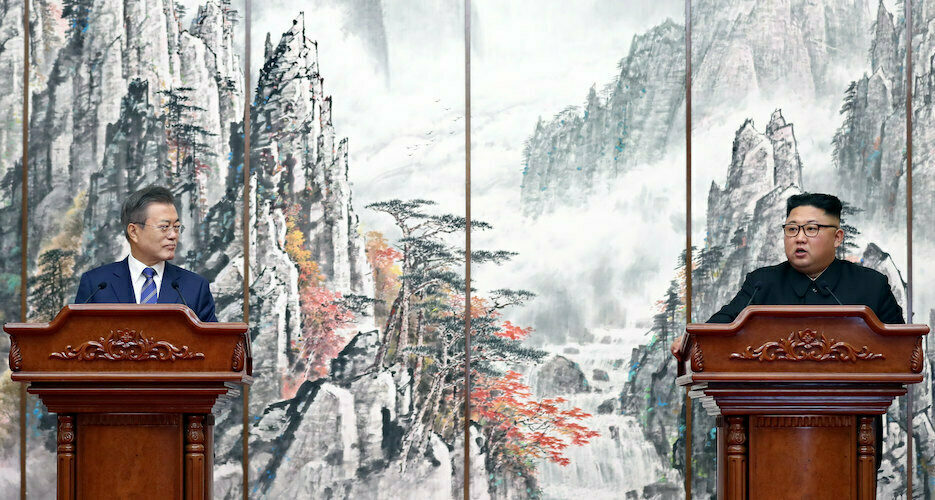A religious sister begins her column 'In the Eyes of the Believer' of the Catholic Times with a greeting from the Book of Numbers: “May God uncover his face to you and bring you peace"(Numbers 6:26).
She was impressed with "The Two Popes”, a film directed by Fernando Meirelles. The film deals with the meeting of two living popes: Pope Benedict XVI and Pope Francis. Although a fictional melodrama, the film shows the meeting of two popes who have achieved a peaceful transformation of church history. It is a portrayal of two men done realistically, with wit and religious sensitivity.
Personally for the Sister, the most beautiful and impressive scene in the film was the dialogue and confession of the two popes and subsequent blessing. This scene of reconciliation with God, self, and the painful past is a turning point in the film, in church history, expressed as a sign of reconciliation and peace. In hope of a new transformation, she looks back on Pope Francis' World Peace Day message and finds in its words a way of resolving the conflicts in our society.
She often hears stories of nuns who are struggling with the large gatherings (demonstrations for and against government policy) held every weekend—the communities' house is adjacent to the place holding the demonstrations. On the way to and from the home, they hear swearing, spitting, and mild violence from the participants; they are fearful of the threatening atmosphere. On Mondays in the same area before and after the Mass for Peace on the peninsula, they see and hear similar insulting comments. from the believers.
With these experiences, when she looks back at the various conflicts that are currently occurring in Korea, many come from the history of division and ideological conflicts experienced in the past and she feels sad thinking of those who are hurting. The division between the two Koreas is a pain that the whole Korean peninsula suffered, the pain of the church included in society, and since her congregation was founded in Pyongyang, they are waiting for the day of reunification. So as we approach the Lunar New Year, we will feel more pressing our desire for true reconciliation and peace.
Every year, the Church announces the World Peace Day message for the New Year, and in this year's 53rd World Peace Day message, Pope Francis talked about peace as a journey of hope with the theme of dialogue, reconciliation, and ecological conversion. In his discourse, the pope wrote: Don't be limited by what one says or does but what is deep inside and is cherished. He urges all of us to join the journey of peace, listening and understanding each other, a journey of peace through dialogue, forgiveness with patience and trust, and treating each other as brothers and sisters. The Pope also mentions the Japanese atomic bomb victims (Hibakusha) who have kept the scars of war intact and praises them for participating in peace activities as witnesses for future generations as they overcame the pains of the past.
In the film, the two popes differed in many ways, in personality and taste, and different in their way of loving and sacrificing for the Church. But as much as they loved the church, they opened their hearts to one another, listened and empathized with each other for the new transformation of the church, and began a new journey of reconciliation with the world. Even if we have different generations, different realities, different political inclinations, we are eager to listen to each other's pains, to sympathize with them, and to go on a journey of peace through dialogue.
Also, Pope Francis sublimates the wounds and pains of his past misjudgments, reconciling the world with poverty and humility, and bringing peace to the world as a servant of the Church. We hope that like a wounded healer with scars of war, and a Korean peninsula cut at the waist, we will move forward as workers for peace on the Korean peninsula, in Northeast Asia, and even peace in the world.
